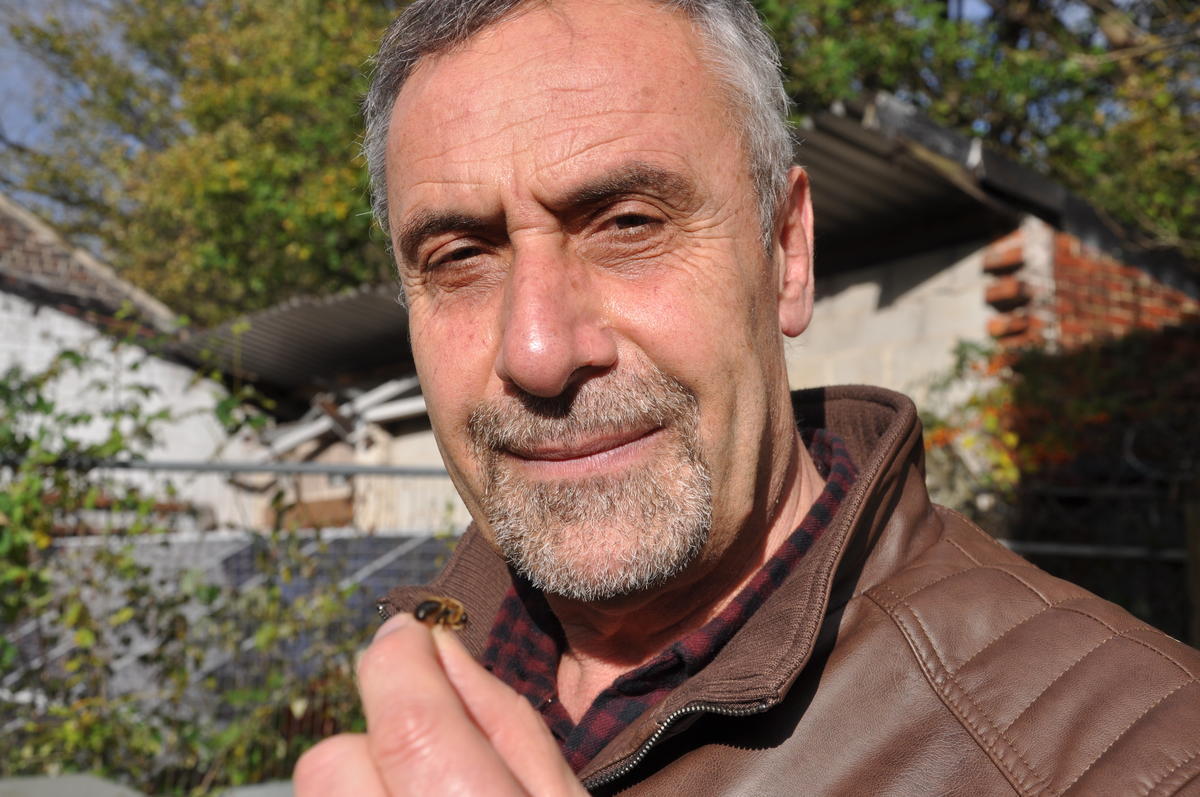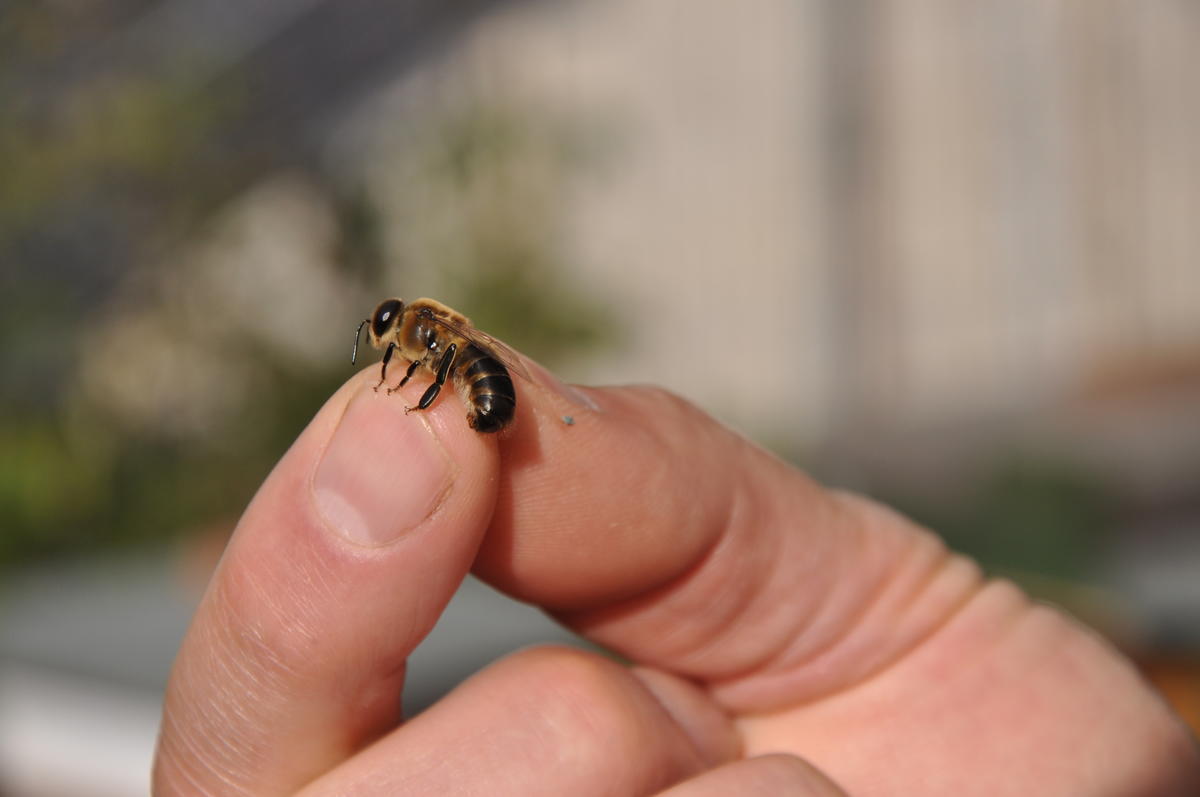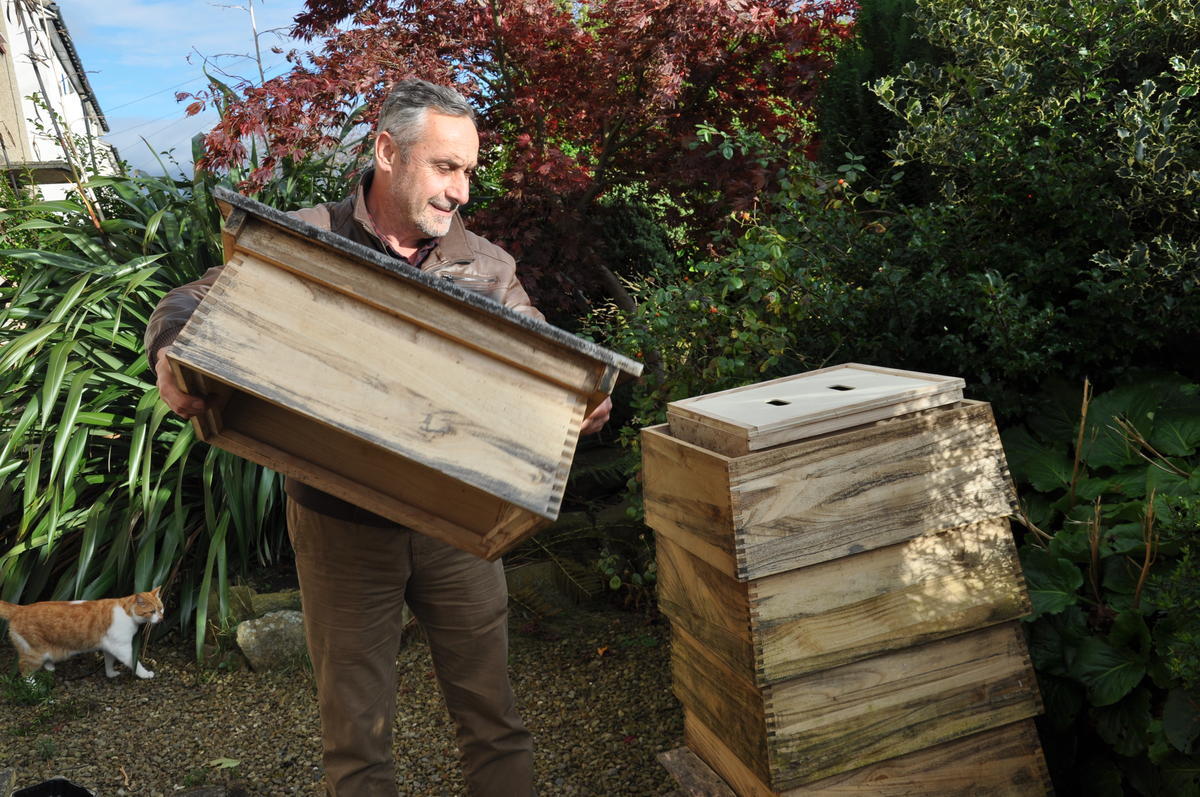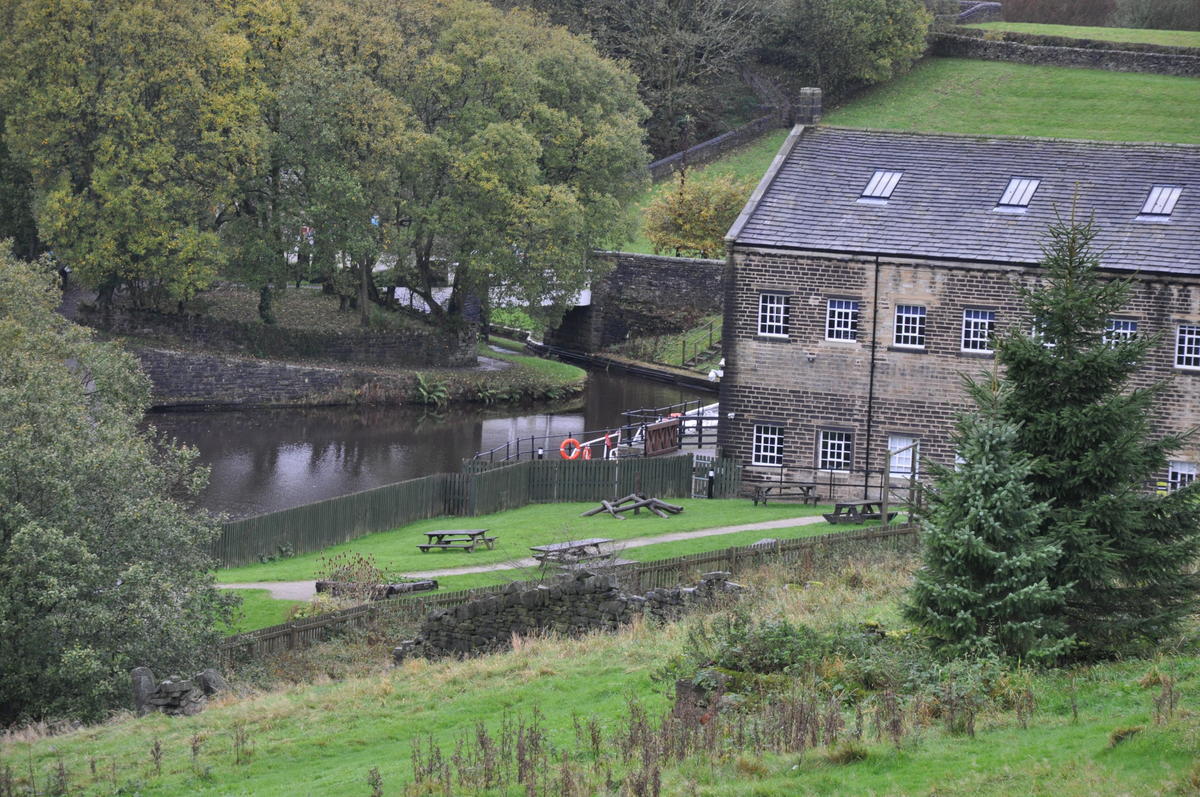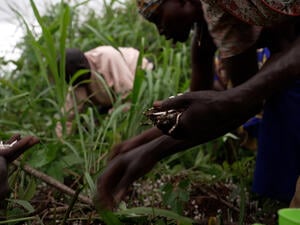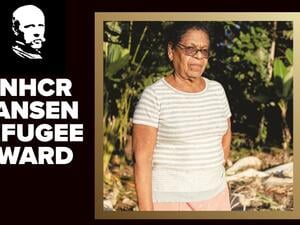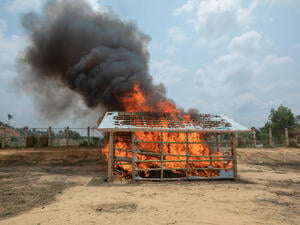Syrian beekeeper tastes sweet success with British honeybees

Syrian beekeeper tastes sweet success with British honeybees
Ryad Alsous stands in the winter sunshine of an orchard in northern England and shakes his head in disbelief.
“Look at them, all working!” he says, watching his bees take off and land at hives carefully arrayed behind the apple trees. “I never thought bees could be so successful in this climate.”
Given bees’ usual intolerance of dampness, Alsous remains astonished at the hardiness of Britain’s native black bee, a furry relative of strains from Germany and the Baltics that long ago adapted to the British Isles.
“Syrian bees can’t go out in even the lightest rain,” he added. “If it’s 15 degrees, there is no activity. But here, they work normally if it’s 15 degrees, or even 13 degrees – even in the rain!"
Once a professor of agriculture at Damascus University, Alsous, 64, arrived as a refugee in the United Kingdom four years ago. Abandoning his research into beekeeping and environmental pollution, he fled Syria for his life after his family received death threats and his car was bombed.
In July 2013, he joined his wife in Huddersfield, the West Yorkshire city where their daughter Razan had settled. Razan, who had arrived the previous year, is something of a local celebrity, appearing on a national television cooking show thanks to the award-wining halloumi produced by her company, Yorkshire Dama Cheese.
Back in Syria, Alsous had managed 500 beehives whose colonies, derived from the Italian and Carniolan strains, produced at least 10 tonnes of honey a year. In addition to his research at the university, he ran a company selling herbal and honey-based cosmetics.
A passion for honeybees was one of the few things he brought with him when he left. Even his precious steel-and-rubber bee smoker had to be conveyed from Syria by a friend later.
“I needed only one hive to start.”
In the UK, it took time for him to find his feet. He knew some English but lacked contact with native speakers. And he was rejected as overqualified each time he applied for a job.
Eventually, he approached the Huddersfield Beekeepers’ Association to volunteer. There, he made friends and contacts, but still he was a beekeeper without any bees.
“I needed only one hive to start,” he said. Finally, he posted an advertisement on Facebook asking if anyone had a hive to donate.
Three weeks later, in September 2015, a woman from Manchester replied. She offered a hive, and to his delight, a colony of British black bees, believed until recently to be all but extinct in Britain.
“That first hive, I've split it seven times,” said Alsous proudly, referring to a method used by beekeepers to prevent “swarming” – when bees take off to nest in the wild. “Really it is like a treasure,” he said. “My aim is to cooperate with the community to improve the strain.”
Alsous’ apiary now comprises 17 hives, which he builds from recycled materials.
Shocked to learn the United Kingdom imports 90 per cent of its honey requirements, according to industry data, he believes Britain’s rapeseed fields and banks of heather and lavender could support many more hives.
It was only when he attended a monthly dinner held for refugees and new arrivals in the Huddersfield region, that his idea started to take shape. There he met two women, Jean York and Jane Wood, who work with refugees in the district of Kirklees, a member of the grassroots City of Sanctuary movement in the UK which helps new arrivals fit in.
“This lit it up for me,” said York, remembering her first conversation with Alsous, when he raised the possibility of teaching beekeeping to refugees and jobseekers.
“If someone asks for help, why not give it?”
Geof Hughes, a local beekeeper who met Alsous through the Huddersfield association, was similarly impressed. “I really valued the idea,” said Hughes. “I wanted to help.”
Last year, they and Alsous assembled a steering committee and got to work. The Buzz Project was born.
Kickstarted with local funding, the project has just given the second of its fortnightly workshops to 12 volunteers. Attendees included three Syrian women, a Congolese refugee with memories of gathering honey in the jungle, and a Nigerian student, who was already asking how to get her first queen.
After a chance encounter with the Huddersfield mayor, Jim Dodds, the project really took off.
Alsous was offered a base for next summer in the nearby village of Standedge, where he will install 10 hives and demonstrate beekeeping to visitors.
Until then, his apiary remains divided between its warmer wintering spot in the Armitage Bridge orchard and a grassy space lent to him by a local mechanic.
“If someone asks for help, why not give it?” said Ted Mankowski, the orchard’s owner who has lived in England for 30 years. “In Poland, my uncle used to have bees.”
Even in the safety of the UK, Alsous cannot forget his homeland, which had half a million hives before the war. Those colonies, he says, have all but collapsed. “I hope to go back one day and help to rebuild. It is very important.”


